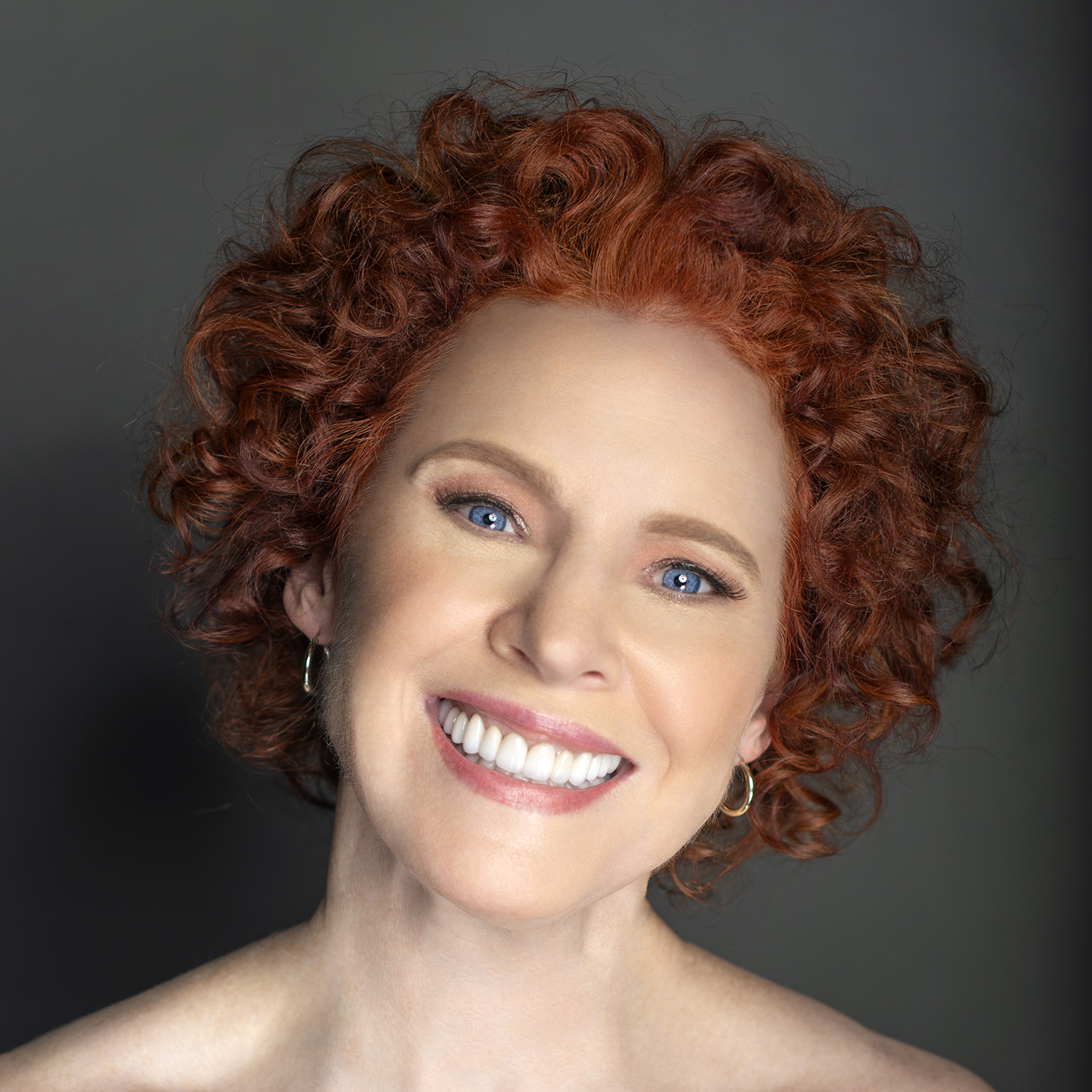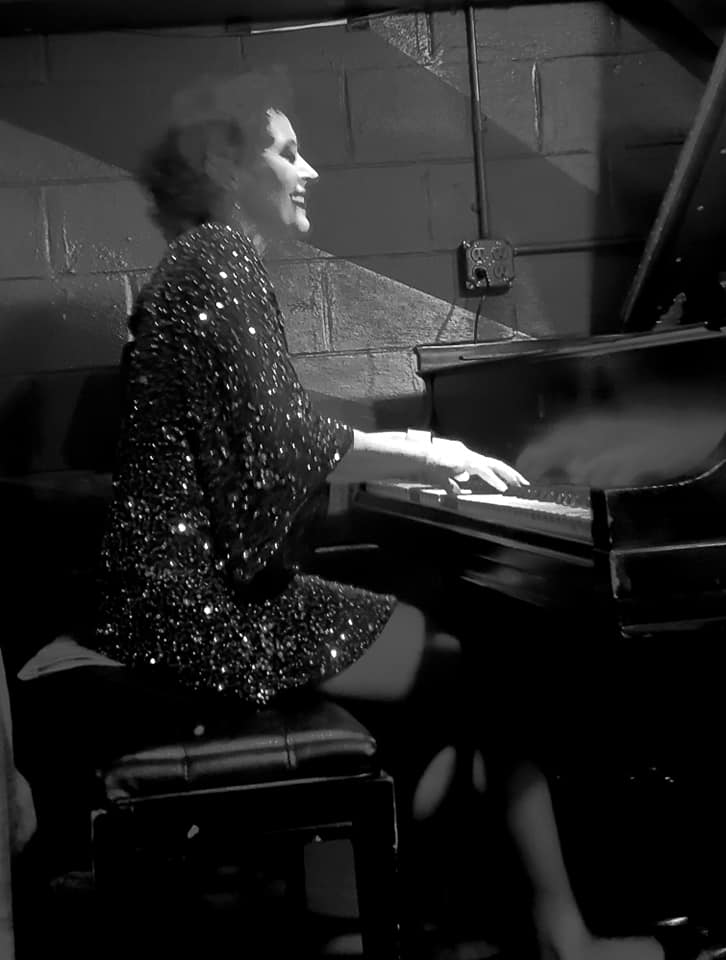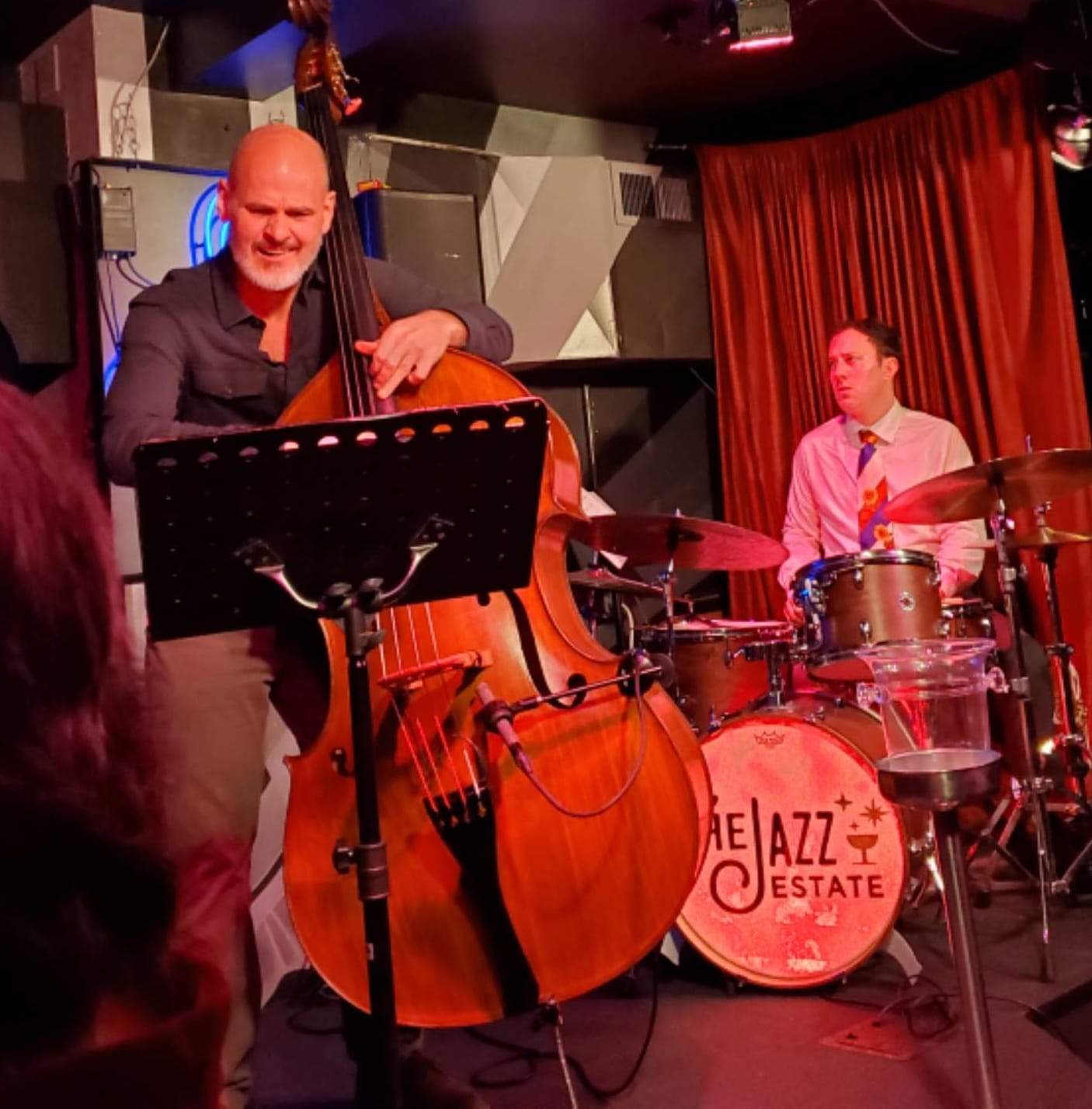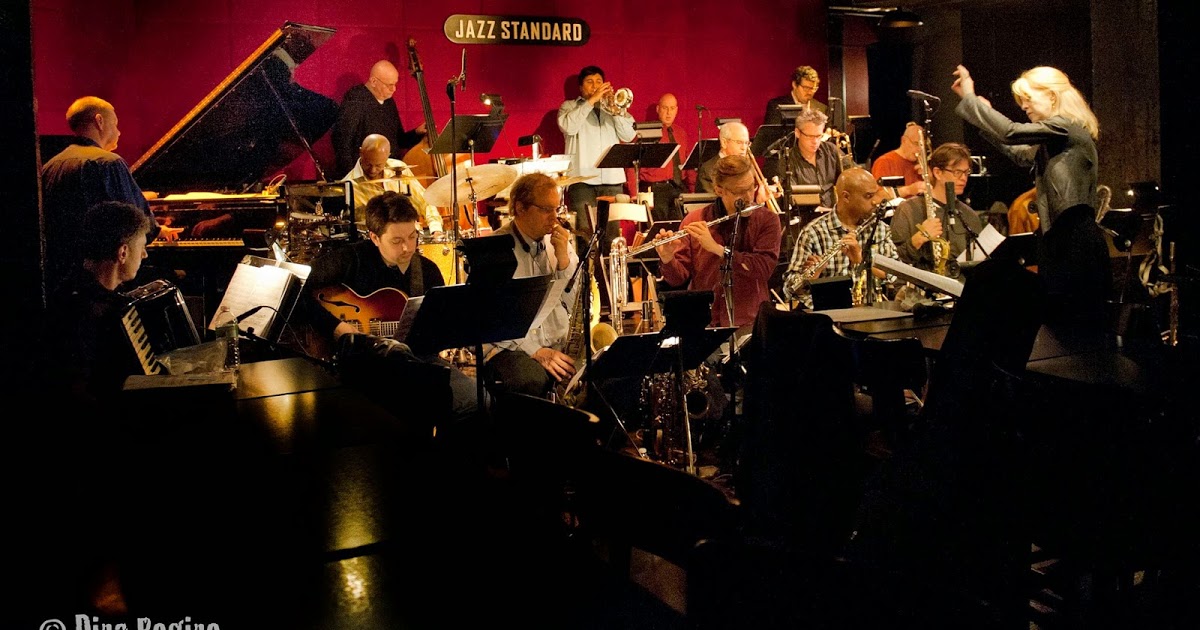
Maria Schneider conducts her jazz orchestra live at the Jazz Standard in New York. Photo by Dina Regine. Courtesy steptempest.org
My posting of National Public Radio’s Jazz Critics Poll for 2020 is belated partly because my Facebook page was in techno limbo for so long, and the various vagaries of life in a pandemic, and being 65-plus with asthma. Good news, I got my first vaccine this week, and my daily rhythms seem closer to normal. Maybe that’s good or not — disruption that leads to new inlets of creativity, productivity and health should also be considered. I’m still working out that tricky balance.
Anyway, I contributed to the NPR Critics Poll again, and the consensus choice for album of the year, Maria Schneider’s Data Lords, was my Number 2 choice. I heard her play some of that arrestingly layered and signifying music live a couple years ago at the Elmhurst Jazz Festival, and she’s clearly a major artist who’s still evolving with the times, and her own complex muse. The high concept album addresses the ways that huge electronic media companies have transformed our lives and ways of thinking and communicating, for better and worse.
Beyond that, none of the top ten consensus choices were among mine. Some of my choices made the consensus top 50. My choices depended partly on what I’ve heard versus other critics.
Here’s Francis Davis’s lead story on the 2020 Jazz Poll and the consensus top 50 albums: 2020 NPR Jazz Critics Poll
And here’s my Top 10 list, at NPR’s website, along with the other critics’ lists: Kevin Lynch’s NPR Poll
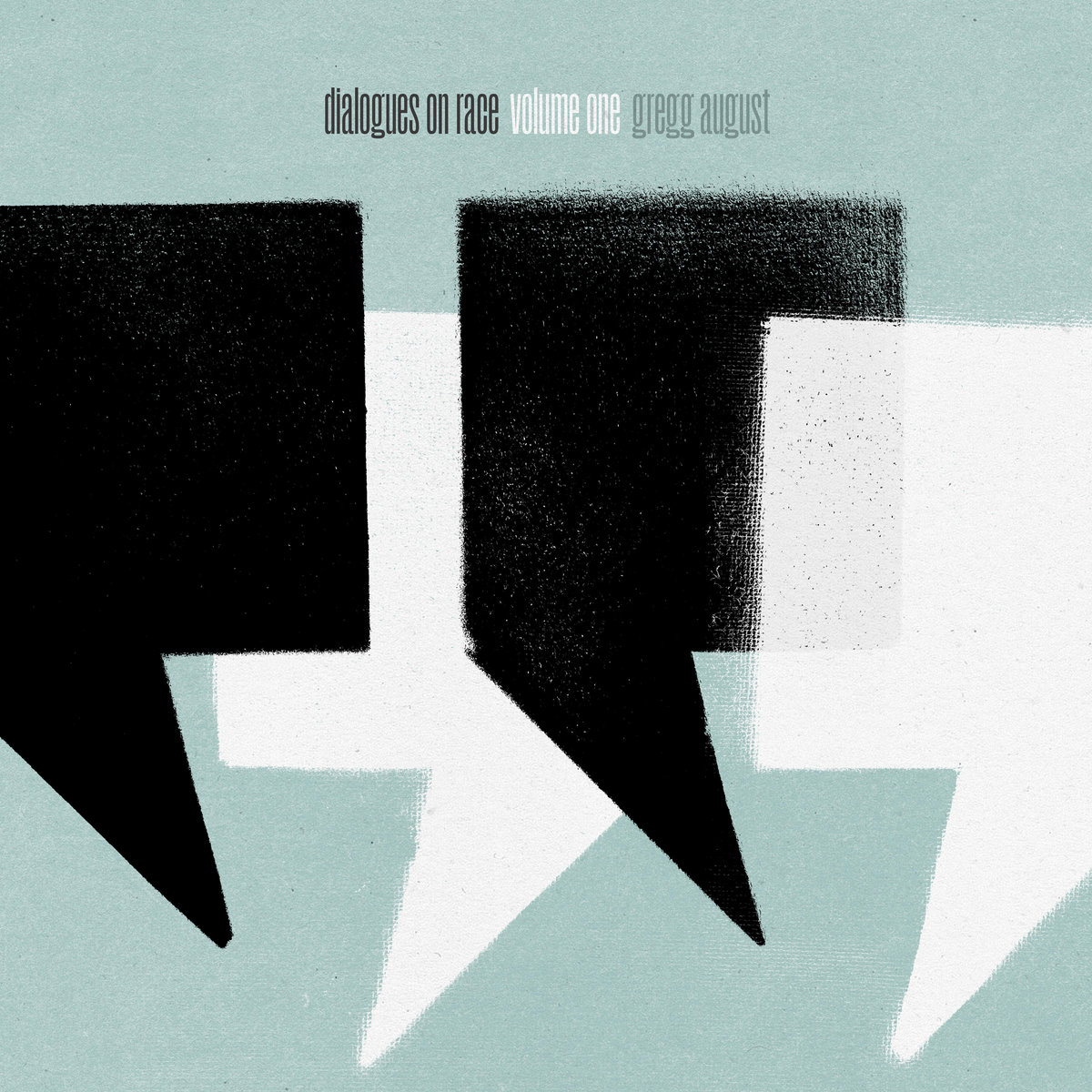
The album cover for “Dialogues on Race: Vol. 1”
NEW RELEASES
- Gregg August, Dialogues on Race: Volume One (Iacuessa)
- Maria Schneider Orchestra, Data Lords (ArtistShare)
- SFJazz Collective, Live: SFJazz Center 2019: 50th Anniversary: Miles Davis In a Silent Way and Sly & the Family Stone Stand! (SFJazz)
- Adam Kolker, Lost (Sunnyside)
- Artemis, Artemis (Blue Note)
- Greg Reitan, West 60th (Sunnyside)
- Lynne Arriale Trio, Chimes of Freedom (Challenge)
- Weird Turn Pro, Maul and Mezcal (Weird Turn Pro)
- Dayna Stephens, Right Now! Live at the Village Vanguard (Contagious Music)
- Dave Douglas, Marching Music (Greenleaf Music)
REISSUES/HISTORICAL
- Thelonious Monk, Palo Alto (1968, Impulse)
- Edward Simon, 25 Years (1995-2018, Ridgeway)
- Pharoah Sanders, Live in Paris 1975: Lost ORTF Recordings (Transversales Disque)
VOCAL
- Kurt Elling, Secrets Are the Best Stories (Edition)
DEBUT
- Emi Makabe, Anniversary (Greenleaf Music)
LATIN
- Poncho Sanchez, Trane’s Delight (Concord Picante -19)
I believe my top choice, bassist-composer Gregg August’s astonishingly powerful and provocative Dialogues on Race, Vol. 1, should’ve rated much higher than 33 on the critics’ list. However, Dialogues has been nominated for a Grammy Award, a worthy honor. My rather outlier top-ten picks overall suggest to me that distribution of albums, especially indie-produced ones like this one, can be spotty, and that there appears to be too few of the 148 participating jazz journalists in the heartland area (Michigan, Illinois, Wisconsin, Minnesota and Iowa), though Chicago, of course, is well-represented. One’s locale, if not itinerant, determines sensibility to some degree, I believe. I’m Milwaukee-based with a strong Madison history, as well.
So I’m really glad that Madison friend and Strictly Jazz Sounds DJ Steve Braunginn included August’s Dialogues in his February 25th Black History Month radio program on Madison’s WORT, 89.9 FM, Here’s a link to the show’s announcement, and to the audio archives you can use to get to Steve’s Feb. 25th show:
https://www.wortfm.org/black-history-month-pt-2-on-strictly-jazz-sounds/
That station’s Monday-through-Thursday afternoon jazz programming is the most consistent source of exposure of recorded jazz in Wisconsin (Braunginn alternates weeks of the Thursday 2 to 5 p.m. shift of Strictly Jazz Sounds with Jane Reynolds).
That’s not to minimize Dr. Sushi’s Free Jazz Barbecue from 9 a.m. to 12 noon Tuesdays on WMSE, 91.7 FM in Milwaukee. I’ve done a fair share of jazz radio programing in the past, so I’m sensitive to its role, especially in this era of online access to recorded music. I’m deeply grateful to these dedicated radio folks, including WORT’s Alexander Wilding-White (Mondays), and John Kraniak (Saturday morning). Research shows that radio remains a very popular medium, despite the the explosion of online media.
Nevertheless, Milwaukee misses longtime jazz DJ stalwarts Ron Cuzner, Howard Austin, Gene Johnson and others, and Madison misses Michael Hanson and Gary Alderman.
I did review a few of my Top Ten albums this year, Here’s my take on Gregg August’s Dialogue on Race:
Gregg August’s “Dialogues on Race” is jazz facing up to racial history and present
And Adam Kolker’s Lost:
Saxophonist Adam Kolker travels in the long shadows of Wayne Shorter
And Lynne Arriale’s Chimes of Freedom:
Jazz pianist Lynne Arriale’s “Chimes of Freedom” testifies to forsaken humanity
Perhaps I should be using this post to expand on my other poll choices. But you readers make your decisions on purchasing recordings most of all by hearing music, which my music writing strives to get you to do. And this poll is facilitated by the nation’s public radio network, which does fair justice to jazz elsewhere, in some of its interview features and jazz album reviews, though not much actual jazz music programming.
So I recommend listening to NPR, the aforementioned local jazz radio programs, as well as accessing recommended music samples online. If you’re interested in the programming and live beyond either WORT or WMSE’s relatively small Wisconsin broadcast range, the shows are streamable.
If anyone is curious beyond the three reviews above about the whys of my poll choices, I’d be happy to expand on them in a Facebook message or, preferably, an e-mail. I’m at kelynchmi@gmail.com. (Unfortunately, I need to fix this blog’s out-of-commission “comments” section below — apologies.)
A blog reflects a writer’s mood and mine today contemplates the connection between sonic media and The Music.
To that end, I will end by at least giving you a sample or two here:
From Gregg August’s Dialogues on Race, Vol 1: “A Wreath for Emmett Till”
From Lynne Arriale’s Chimes of Freedom: “Chimes of Freedom”
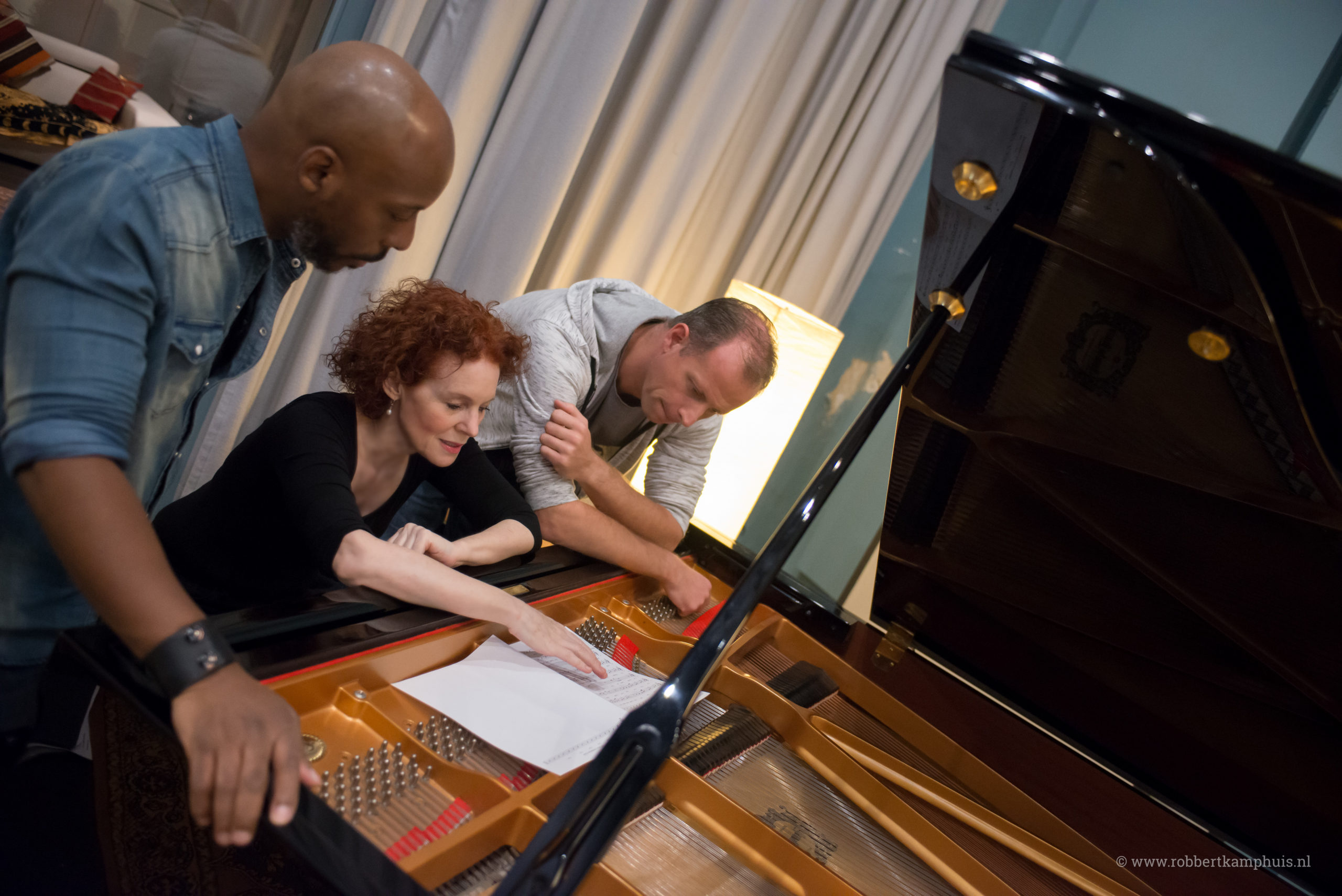
The Lynne Arriale Trio (drummer E.J. Strickland, left, and bassist/co-producer Jasper Somsen, right) recording “Chimes of Freedom.”
I’m a bit biased towards jazz with a social conscious. I think much of authentic instrumental jazz does have that, at least implicitly, as I explore in my forthcoming book (I promise!) Voices in the River: The Jazz Message to Democracy. But these two pieces, with texts by Marilyn Nelson (“Wreath”), and the astonishing lyrics of Bob Dylan’s “Chimes” make that case more obviously. Dylan’s lines refract with a poetic density of images, but with clear pay-off kicker lines. It’s a lyric that, I believe, traverses the political spectrum. I mean, it’s the chimes of freedom, for a vast array of characters. Listen, think and feel.
It’s worth searching out the full lyrics of one of Dylan’s greatest opuses. Arriale’s version, sung by K.J. Denhert and beautiful as it is, only presents three of the six verses.
_____________
Like this:
Like Loading...
